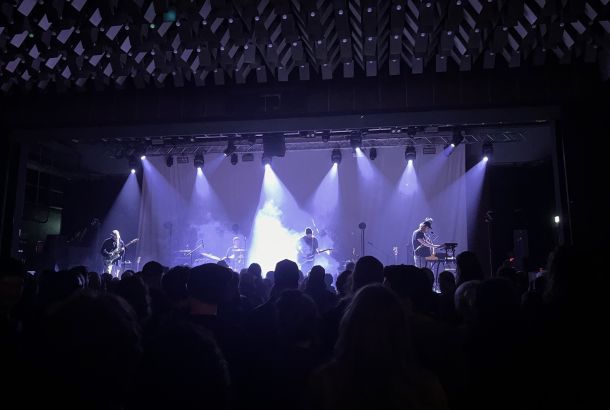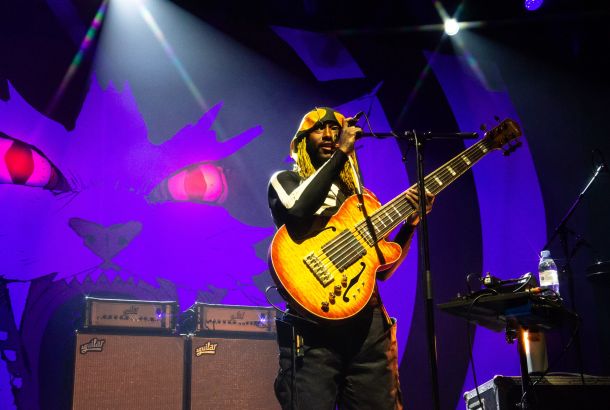Ladies first: Misogyny in the music industry
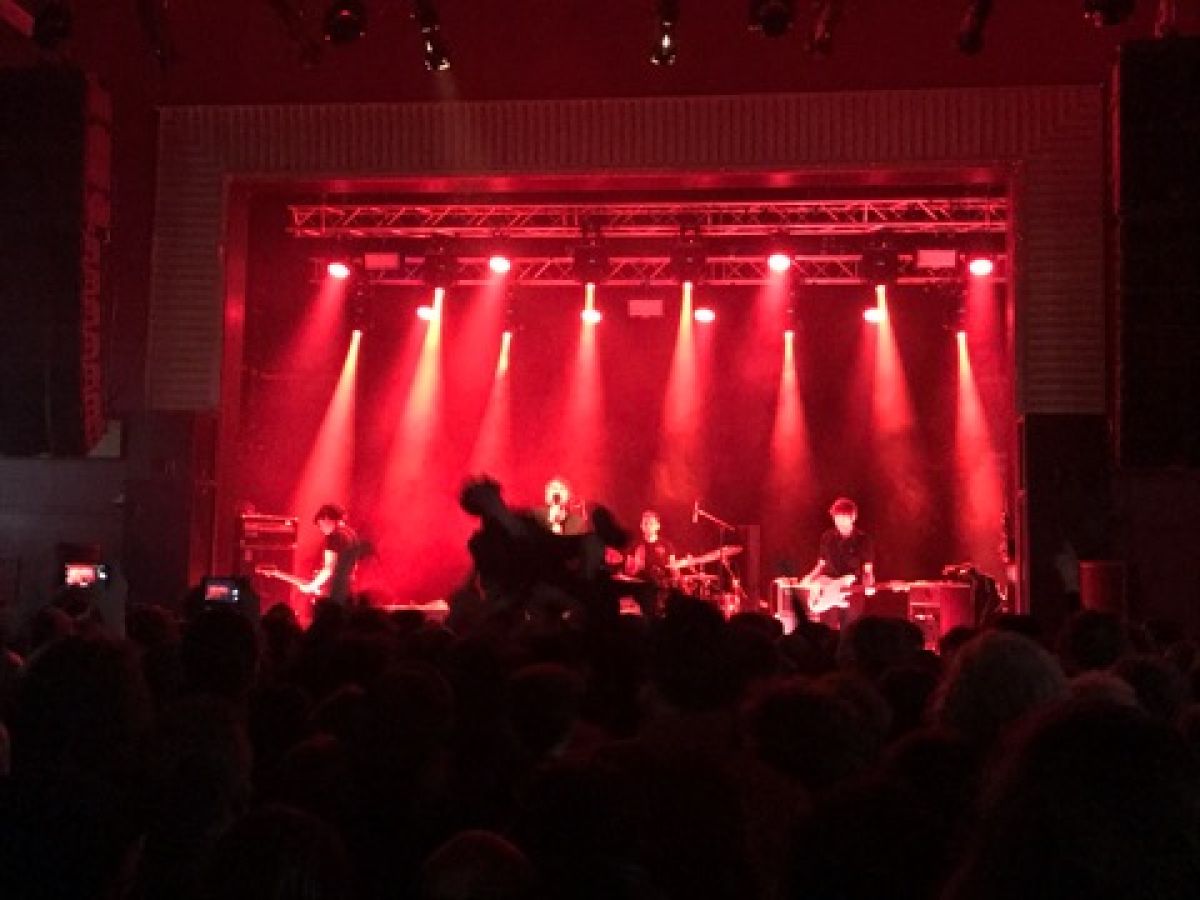
Discussion around women’s experiences in the predominantly male music industry is not new, however I wanted to take look specifically at the experiences of women in predominately male bands.
Starting with some facts about the industry, this article features two first-hand interviews. First, a statement from women in otherwise all-male bands and discussions around representation, femininity or the pressure to conform to masculinity, with the second being the casual and everyday sexism that women face regardless of what industry they work in. Writing this has given me a new level of appreciation for female artists and made me internally question my own taste in music. I hope it does the same for you.
- Keychange found that the music industry is still mostly populated by men, with the industry being 70% male.
- Soundgirls found that only 5% of sound engineers in the UK are women.
- The Music Producers Guild estimates only 6% of members are women.
- These statistics only get worse, with Statista revealing in 2015 there were 13.7% women pop songwriters, but by 2018 this had dropped over 1% down to 12.2%.
- The USC annual report found the main barriers for women in the industry are objectification, stereotyping and being a statistical minority.
- The NPR found that “if there’s 17% women, the men in the group think it’s 50-50. And if there’s 33% women, the men perceive that as there being more women in the room than men.”
I had the pleasure of interviewing Indie Armstrong and Katie Harkin, as well as receiving a statement from Sarah Surrage. I’ve also included opinions from Anna Prior from her appearance on ‘Women in Music with Millie Cotton’ podcast, where she adds the importance of maintaining female representation, and being feminine in a masculine industry, especially as a drummer, to the discussion.
Indie Armstrong, Overpass
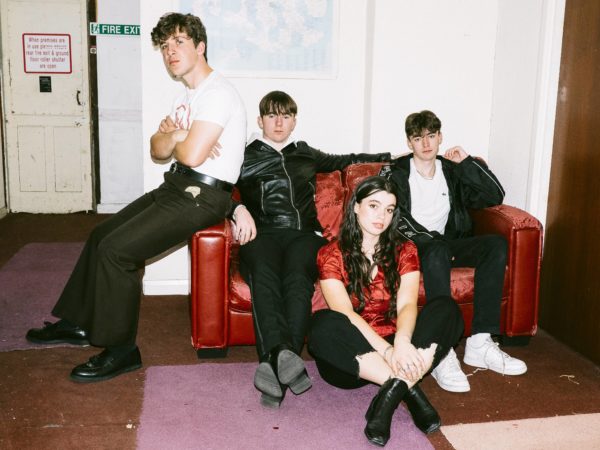
Following her band Overpass touring in the final few months of 2021, Armstrong released a statement about her experiences in comparison to her (male) bandmates.
Armstrong wrote “Unfortunately, after some of these gigs I have been objectified by people who showed respect and decency to the other members of the band but not to me.”
“I’ve had to play gigs with middle aged men stood at the front licking their lips at me. I’ve had to try ignore it at gigs where groups of boys have asked for my Snapchat during the set. I’ve seen messages between other bands talking about my body. I’ve been sent explicitly sexual messages by people who have been at my gigs. I’ve had older men touch my waist and kiss my face after gigs. In short, I’ve been made to feel uncomfortable at my own gigs in ways that my bandmates haven’t.”
When I asked Indie why she thinks she has been treated differently and made to feel uncomfortable she said, “I guess it’s no different to any other career, misogyny is pretty much a daily experience for most women, and I’ve realised that the music industry is no different.”
She further wrote “To come off stage and see the other members of the band be complimented on the set and engaged with like human beings, whilst I’m being asked whether I think I fit in enough as a ‘female’ in my own band is humiliating.” This baffled me. Her comment on being ‘fit enough’ to be in your own band is not something any man would face. There is this recurring theme of women having to not only sound good but also look good to be in a band.
When I asked Indie to expand on this she said “Indie-rock especially is a very male dominated genre, or at least it’s the male bands that have traditionally succeeded. Think Oasis, Artic Monkeys, Blur, Catfish [and the Bottlemen]… being asked if I’m the right fit isn’t surprising when you realise that most of the representation people see is male.”
I stated that I thought this came down to the male gaze and asked how this impacts and affects Indie. “I like looking good and feeling confident on stage for myself, but it’s impossible to detach that from the male gaze. Being sexualised by audience members makes me second guess my outfit and appearance, making me feel uncomfortable. I’ll still enjoy dressing up no matter how people act, but it’s just a reminder that men will sexualise you whether you’re conscious of it or not.”
Being the only woman in Overpass, Indie is faced with multiple questions on this nature. She wrote “Most of the time people have good intentions, but to be called a ‘female’ multiple times within minutes of coming off stage feels patronising. When interviewers ask the band questions about our music etc. and then turn to me and ask me “what’s it like to be a female in a band?” I’m reminded how unusual it seems to be for women to be represented in this industry.”
“It feels like I will always be viewed as a woman before I’m seen as a musician. I’m often not viewed as a bassist, but as a ‘female bassist’, because being a man is the norm.”
I asked Indie if she was aware of the discrimination and heavy male bias in the music industry before facing it first-hand, to which she said “I’ve always just seen myself as a member in a band. I’m not constantly reminded of my gender, and I think it would be an unhealthy dynamic if I was. But when external people bring it up and try to make a deal out of it, that’s when I’m reminded ‘right, I’m a woman and this is not the norm.’”
I asked what were the implications of having the stress on being a woman in music individually and in the greater context “It’s just a question of constantly feeling defined by your gender, and that’s a very depressing and binary thing. Individually, I want to express myself in my own way and not be constrained to certain expectations.”
“Sometimes, comments about gender can be important and affirming.”
I asked Indie if having the distinction is important in order to encourage more women and girls and potentially positive discrimination. “Women are underrepresented in the industry, but that doesn’t mean that there aren’t loads of female bands out there, increasing as there is more representation now. I think music is a creative thing that people should be freely drawn to, but when people are there and have talent, that should be recognised.”
“For example, I think festivals should totally be looking at the gender dynamics of the acts they’re booking and be more conscious that they’re setting the tone for visibility and success.” Indie wrote in December: “For example, I’ve had girls come up to me and tell me that I’ve encouraged them to buy a bass guitar or get more into music, which shows the importance of representation.”
Indie went on to write that she “noticed this overarching theme of sexism” when interacting with people after gigs. When I asked if this is discouraging, she said “It’s just become expected in some scenarios, even people who think they’re being respectful end up being patronising. It’s hard to expect people to be perfect when the patriarchy is so ingrained, but the casual sexism I experience and witness is often laughable.”
The comment about being called ‘female’ multiple times minutes after coming off stage stuck with me. I asked Indie how can journalists address the topic of the lack of women in the industry in a way that doesn’t dismiss or diminish that you are musician and artist as well as a woman, not woman then artist. She said “I think coverage is important, particularly listening to people’s stories and perspectives without trying to create a narrative for them. It’s a hard topic to address, because it’s almost like addressing it is just pointing out that it’s unusual for women to be in music. But it’s obviously not, so as long as media coverage is not misogynist, women are equally represented, recognised and respected, then I think the dynamics will be on track to be balanced.”
Not wanting to leave this exchange on a negative note, I asked Indie what her practical advice for women and girls wanting to get into the music industry (especially bands) would be. She said “I think that there’s never been a better time, so go for it. It sucks because you almost have to expect that you’re going to get comments from men telling you how you should play your instrument, but you have to try and brush it aside if you can”.
The final part of her statement ended with “there’s a right way to go about things, and I would just like to be shown the same respect that my bandmates are shown regardless of my gender.” I think this clearly shows women are just asking for the bare minimum: to be treated as human.
Katie Harkin, Wild Beasts, Sky Larkin
Sky Larkin was formed when Katie was just 18. Having been involved in the music industry, Katie has a huge number of stories and anecdotes from touring to individual gigs. She recalled Sky Larkin’s first gig – the band travelled from Leeds to London on the train and then took the tube with all their instruments, finally reaching the venue. They were desperate for the loo, and she followed the boys into the gents toilets like “a row of ducklings”, then realising “No. I’m different. I go next door. It was that point where we had been one unit and then we were breaking off into two different units.”

She said because in a band “you are eating, sleeping, breathing the same routines, it makes the things that are different more jarring”. It appears as though the “tribalism” and “familial” part of being in a band made it more obvious that she was different. She used the example of when she was touring with Wild Beasts and “the guitarist Benny had just come back from a run around this nameless canal in nameless Germany. We had no idea where we were, and I just thought ‘Wow. I can’t do that.” She emphasised that this was not a reflection of him, but a matter of the reality of being a woman.
I asked Katie if spending so much time with men was what made her aware of the casual and everyday sexism in society, to which she replied “I think its things that wouldn’t have popped out if I hadn’t been in a group of men; I wouldn’t have necessarily reflected on it because it’s such an embedded part of my everyday experience.”
Moving on to the genre of indie-rock specifically, I asked if specific genres need more attention to increase the female representation. Katie said that it’s not specific genres, but actually “any creative pursuit is about access, and you need to look at what it takes to get to the place where you can get successful – and so often that’s time and money. Time to rehearse and money to buy equipment. And that is linked to deeper routed inequalities in society: sex, class, race, gender, all of it.”
When I asked why often it is the all-male bands who succeed, Katie said that these groups of peoples are seen as “safe bets” and it’s important to remember that “there’s so much investment in any new bands” and for labels it’s about which new band is “bankable”.
I asked Katie to expand on how she was treated differently to her male bandmates. “I mean in the ways that men and women are treated differently. There were definitely times where industry players would come into the dressing room and I was invisible, I remember one guy coming in, and in a dressing room after the smoking ban, sitting next to me and lighting a cigarette and I was like ‘Hi! Nice to meet you… I’m Katie… I’m asthmatic, what are you doing’”. Again she emphasised that this should not reflect badly on the men in Wild Beasts “because were truly the kindest cleanest most gentlemanly boys I ever went on tour with”. We joked about tour hygiene, or lack of.
Katie went on to say “The burden isn’t with the men we are in bands with, it’s that I would ask the people in all male bands to be like ‘is that weird to be on a tour where there’s no women? That doesn’t reflect the world that you are touring in…’ – like you still see those end of tour group where there’s as many crew in the picture as there are band members and there isn’t a single woman and I’m like how did nobody notice this!?!”
Going on to tell an anecdote, Katie shared that she’s been denied access to stages that she was about to play on, despite standing there with all the correct credentials. She described this as “frustrating” but hopes that this behaviour is changing.
“I really do hope it’s behaviour that is dying out”
When I asked why is representation such a huge factor, Katie replied that “there’s a certain amount of if you want to be you don’t necessarily have to see it but it’s incredibly helpful to see it to be it”.
Discussing the male gaze and pressure to look the part, as well as sound good, Katie said she had a different experience navigating these spaces as a queer person, “especially all-male spaces where they know that I’m gay, because I’m not an object of affection or if I am it’s definitely not going to happen”.
“I really hope the world is becoming less binary and less gendered in general. And I hope the culture reflects the wider world in some way, so my heart breaks for the people who were in all-male bands who didn’t necessarily feel like they were all male. It’s a prison toxic masculinity.”
We went on to discuss positive discrimination and quotas. Katie stated, “The most positive change is if we can have a creative culture that as closely reflects the world around it as possible and I think that with any structure that is enforced, it almost has nothing to do with the bands and nothing to do with the audience, and everything to do with the people with the gatekeeping power who control these spaces, because realistically it’s a cash flow thing”.
I asked if organisers saying there aren’t any good enough female bands was an excuse and Katie went onto say “I think it brings up the question of what is the job of someone who is booking an event like that and the spectre of profitability that hangs over the creation of art and who gets to decide who is more… again people will invest in things that they think are safe bets.”
“You just have to look at the entire history of recorded music to know that if it wasn’t for women and people of colour and minorities, we wouldn’t have popular music! So, it should be reflected!”
Finally, discussing whether it is important to emphasise women in the music industry or whether it is patronising for those female artists, Katie stated “it’s more about the myth of a white, cis, hetero, male neutrality that that is a somehow neutral state of being and all other states of being are ‘other’, and that is the wider issue of all of this.”
From my discussion with Katie, it is clear that the sexism and misogyny exists in the music industry, but also in the same way that every day and casual sexism exist in the wider world and society. The key takeaway was that touring with men or being the only woman in a band meant that the everyday sexism she was acclimated to was made obvious, and the people around them made her constantly aware that she was different.
Sarah Surrage, STONE
“Being the only girl in a band puts me in a really influential position, a lot of our fans are young impressionable girls who look up to me as a female artist. I’ve had so many girls approach me for advice on learning bass and guitar, it makes me feel proud to know that I have gotten more girls into the industry. We need that girl power that is pushing though at the moment! With the band, they support me so much, Fin always pushes me to be the best I can be, and they all treat me like their sister. They would never allow me to be treated any different. It’s not uncommon to come across discrimination but I don’t take notice of it, I just want to be seen as an artist. Before a show I am usually very calm and relaxed, so I wouldn’t be surprised if anyone didn’t realise that I am in the band, they just have to wait and see my crazy big stage ego.”
Anna Prior, Metronomy
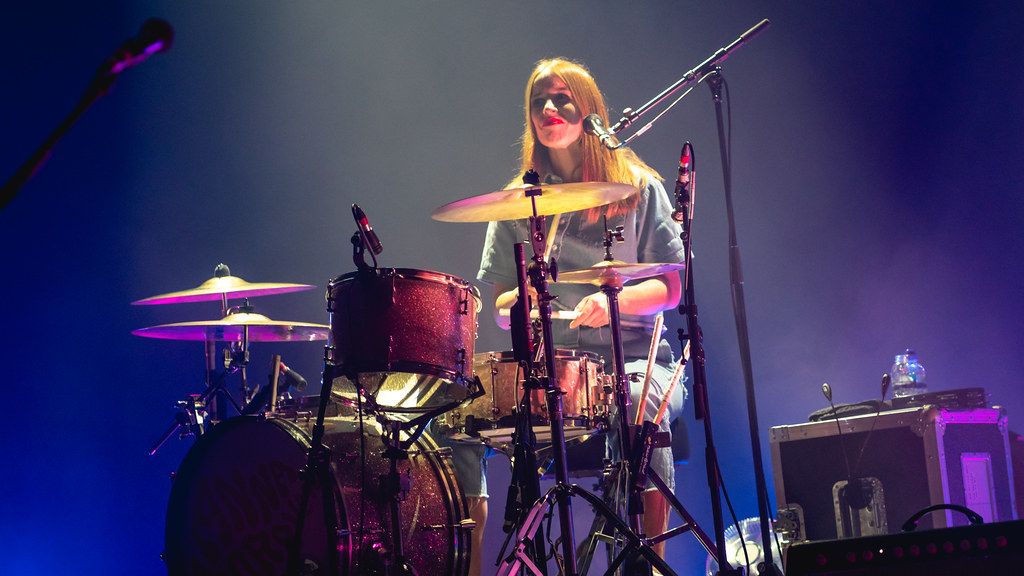
In a podcast on Women in the Music Industry, Anna says she never realised that she was woman in music until she was specifically asked about it. However, she now realises its importance and has a little black book with female drummers to pass on their numbers if she is unable to perform, to ensure the female representation. Her idol was Shelia E, who drummed for Prince. The big reason being because Shelia maintained her femininity in the very masculine scene, wearing short sequin dress, a red lip and super high heels. Anna also talked about having a female band manager, and how this was beneficial.

Some people say we need more positive female role models, but really, they mean we need MORE. A huge part to play is representation, or lack of, as Indie and Katie mentioned. Laura Marling (guitarist and singer-songwriter) said “if you prevent women from seeing any examples of them achieving, then it prevents them from believing they can achieve it” in her podcast Reversal of the Muse, proving just how important representation is for women and girls.
There is hope though.
For example, Liverpool Sound City (excellent line up by the way) has pledged to have a 50:50 gender split by 2022 – along with over 500 music organisations. There are also a number of initiatives not only helping women to get into the industry but helping the industry get more women involved too – for example Keychange and Brighter Sounds. Wordplay have also launched a “Where are the women headliners?” t-shirt with “more to come”.
I certainly see this a step in the right direction, but there’s always the question of what more can we do? This is a problem the industry itself needs to address for the betterment of music, gigs, and life as a whole.
Personally, I would like to see not only female artists but men and all-male bands calling for more women on festival line-ups, as well as choosing female bands and acts as their gig supports. Diversifying your line-up and support acts is nothing but a step in the right direction. Diversifying brings representation, and through all the research I’ve done and the conversations I’ve had, the cry for more representation comes up time and again.
I also think producers and labels have a streak of dismissing the barriers of being sexualised, objectified, and dismissed. This behaviour needs to be called out, and if it’s not called out from within the power structure then male artists need to stop associating themselves with these labels/producers/organisers/managers.
Katie told me of a quote by Kim Gordon that goes “People pay money to see others believe in themselves.” So, I ask when are we going to be able to pay to see women believe in themselves?
